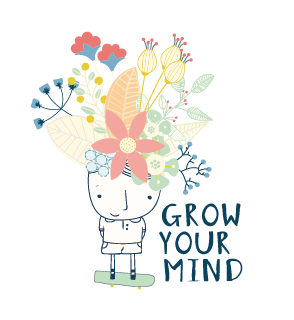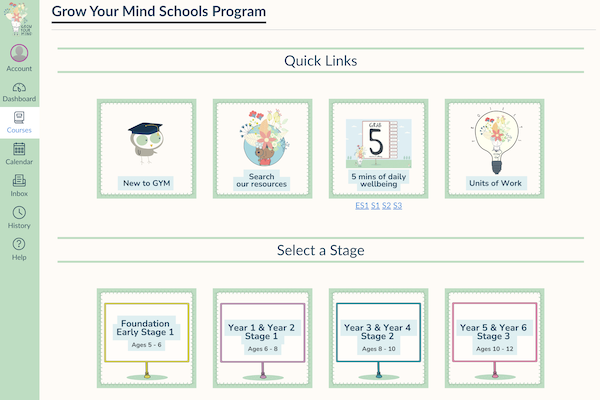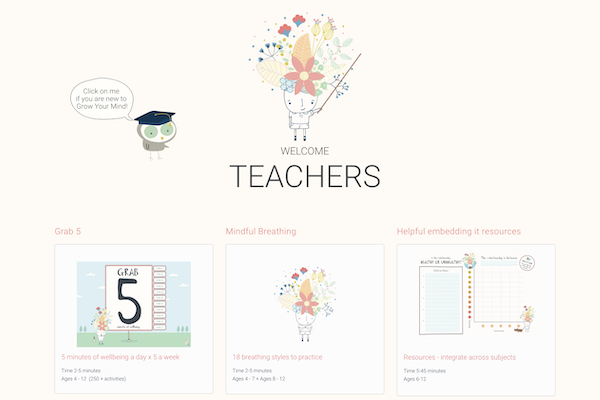Why teaching resilience is important and why it doesn’t need to take teachers a lot of extra time to teach. Instead, it’s about a holistic wellbeing culture at school.
In a time when we’ve swapped classrooms for computers and high-fives for hand sanitiser, questions are building about the resilience of our young people.
Do they have the skills to cope? Can they adapt to the new reality? Will they be affected long term?
Research from the last 2 years has shown that the mental health of young people has certainly suffered amidst the chaos of the pandemic. 74% of young people reported that their mental health was worse since the outbreak and 86% said COVID-19 had a negative impact on either their mood, wellbeing or sleeping.
While these numbers are concerning on their own, many young people were already experiencing high levels of mental health related problems pre-pandemic. According to Beyond Blue, almost 14% of young people met the criteria for a mental disorder diagnosis and one fifth experienced high or very high levels of psychological distress.
It’s no surprise that we’re concerned about how resilient young people are. They don’t have the time or experiences behind them to prepare them for the unprecedented challenges they’re facing. Many adults don’t either!
So, what does the evidence tell us about resilience and what role do schools play in building it?
School and resilience go hand in hand
Research tells us that a person’s resilience comes down to a number of factors including individual, psychological and biological characteristics, the relationships they have and environmental influences including those at school.
For young people in particular, the school environment is vitally important. A study focused specifically on young people, found that at age 16-17 large differences existed in the average resilience scores depending on the level of school belonging that students reported. Those with the highest levels of resilience also reported the highest levels of school belonging. Confirming that schools, and all of the experiences they provide, directly contribute to how well young people deal with life’s challenges.
Resilience also plays an important role in young people’s ability to learn. More and more research is showing that students with positive mental health and high levels of resilience perform better academically. One study that involved 270,034 students from kindergarten to high school showed that school students who undertook social and emotional learning programs ranked on average 11 percentage points higher on achievement tests than students who did not.
So we know schools are an important setting for students to learn resilience. And it’s also important for students to have resilience in order to learn. So how do we help them build it?
Four ways to help students build resilience
According to expert Dr. Lucy Hone, resilience is a skill that can be strengthened by any person at any age. Something Dr. Karen Reivich echoed when she said that resilience isn’t something you either have or don’t have – resilience is something you can grow. No matter how resilient you are today you can be more resilient tomorrow.
So even students who hadn’t flexed their resilience muscle much before the pandemic, have the opportunity to work on it now. And we can help them.
By taking a strengths based approach we can teach students the skills they need to rise up in the face of adversity. To help with this, we’ve put together four of our favourite strategies for building resilience.
1. Focus on realistic optimism and gratitude
Martin Seligman, known as the founding father of positive psychology, is the recognised authority on building resilience. His work highlights the importance of optimism and gratitude as key strengths of those who are considered resilient.
Optimism, Seligman says, is a learned behaviour and should be a priority for children, in order to build resilience, prevent poor mental health and extend life. Finding age appropriate ways to teach this can be tricky, so at Grow Your Mind we created the concept of shark and dolphin thinking as a playful way to teach optimism and pessimism. From a young age we aim to teach children that not all thoughts are facts and that some thoughts can be helpful and others can be unhelpful.
In his work, Seligman also states that gratitude is a powerful technique to practice in order to boost long term mental wellbeing, in fact it is the key ingredient in all long term studies on people who feel happy for extended periods of their life. It is also a big component of building optimism. At Grow Your Mind we provide every day suggestions for practising gratitude in an authentic way. The strategies we suggest vary from journals, reflection questions, meditation and highlighting children’s literature that supports the practice.
2. Help build student perspective stories that spark curiosity
Perspective is something that we learn with time and age, but it can also be an excellent tool to have in difficult times.
We cannot expect our children to have perspective about the pandemic and how that relates to other events that have occurred in history. This unrealistic expectation not only lacks empathy it also risks not validating children’s feelings properly. We can, however, tell real stories that remind students that humans are capable of being extraordinarily resilient.
At Grow Your Mind we wanted to share stories with students in a way that sparked their curiosity. So we work with an amazing playdough artist who creates realistic portraits of remarkable people from across the world. We use these portraits to introduce the stories of the people behind the faces, sharing their setbacks, sadness, tragedy and stuff-ups. Sounds depressing, right? Quite the opposite. Each person we feature has not only overcome these monumental challenges, but they have also gone on to flourish and be of benefit to those around them. An important lesson for any young person.
We have 10 examples of these lessons free on our YouTube channel and over 30 in our Grow Your Mind Schools Program resource with learning activities linked to the curriculum for 5 – 12-year-olds.
3. Create the space for connection
Studies show that resilience is higher in young people who have at least one good friend, a high level of trust in their friends or good communication with friends. Given schools provide most of the opportunities children have for peer-to-peer interaction, it’s vital that we create the space and opportunity for friendships to grow, explicitly teach interpersonal skills and keep on top of classroom and playground culture to support struggling students. At Grow Your Mind we also teach children that not all friendships are good for us. We help kids identify signs that a friendship is unhealthy and provide tools for children to know what a respectful friendship feels like.
But it’s not just peer-to-peer relationships that are important. Student-teacher relationships play a big role in helping students feel valued and supported. When they experience this sense of belonging, resilience grows, particularly among students who have challenging family situations or personality traits that affect their ability to cope. So when creating connections with students, teachers should consider how to build up their self-belief, persistence and adaptability. Because not only are these great traits for all students to have for their learning, they also form the foundation for resilience. Grow Your Mind can help with this by creating a foundational language of wellbeing for the whole school by linking social and emotional education directly to the brain with a playful animal analogy that is developmentally appropriate for young students, but resonates with older students and adults too.
4. Use the 7 ingredients for resilience
After years of research Dr. Karen Reivich has defined 7 habits that are needed to build resilience in young and old alike. These are:
- Emotional awareness
- Impulse control
- Realistic optimism
- Flexible thinking
- Self efficacy
- Empathy
- Reaching out (taking risks)
Your students will be strong in some of these skills, but need to work on others. Getting to know your students will help you to determine what areas they should focus on.
To help with this, we created the Grow Your Mind podcast to teach students the key steps to positive mental health and resilience. Listened to in over 90 countries and silver award-winner of ‘Best Wellbeing Podcast’ in the Australian Podcast Awards 2021, it’s a super flexible learning resource that uses humour and storytelling as a vehicle for children to explore what it means to feel mentally healthy.
Adversity doesn’t discriminate
As adults, we know that adversity isn’t saved for a select few. It’s experienced by everyone at some point in their lives. That’s why we want our children and students to build up their resilience, so they can meet life’s challenges and come out the other side relatively unscathed. So at a time when young people are facing more challenges than ever it’s important for schools to focus on strategies that will build them up. And Grow Your Mind can do just that.
To learn more about how we have helped more than 13,000 teachers and 250,000 students, complete the form below and we will be in touch.


